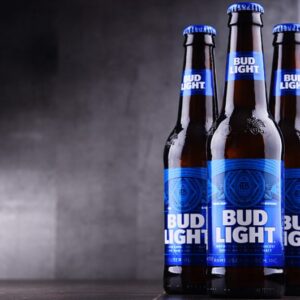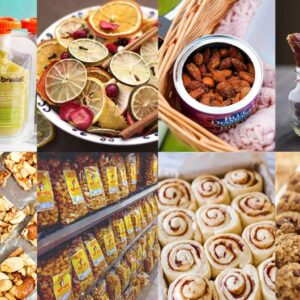
Looking to build muscle as you work on gaining that perfect physique? Your trainer may already have advised you to stock up on proteins to meet your fitness goals. But, did you know that, apart from protein, many other nutrients from diverse food sources can also boost your fitness journey?
Read on to know what to eat to gain muscle effectively.
What to Eat to Gain Muscle
The following fruits and veggies can help you build muscle and strength while adding to your daily nutritional requirements.
1. Beans and Legumes

Beans and legumes like lentils, chickpeas, and edamame are some of the best sources of protein. They’re a great option for those abstaining from animal products as these nutrition-dense foods work as excellent meat substitutes for muscle building.
They also contain slow-releasing carbohydrates and fiber, making them a great energy source. Their magnesium content can also enhance exercise performance and improve muscle function to promote muscle gain.
2. Dairy

Yogurt, particularly Greek yogurt, cottage cheese, and reduced-fat milk, can offer calcium as well as whey (water-soluble milk protein) and casein. This dairy item is also packed with amino acids and can aid muscle protein synthesis and reduce muscle soreness. These benefits make it a great hassle-free post-workout snack.
3. Eggs

Eggs are a common staple for anyone wanting to up their protein intake. Why? Because one whole egg contains around 6g of protein, making it an excellent source of protein for muscle building.
It’s also packed with all the essential amino acids your body needs. It also contains choline, which may help reduce fatigue and improve athletic performance by maintaining communication between the nervous system and muscles.
4. Fish

Fish such as tuna, sardines, and salmon are high in protein. They’re also a good source of omega-3 fatty acids, which can help enhance muscle protein metabolism to aid muscle growth as well as reduce inflammation in the body.
To top it off, oily fish like salmon also contain potassium and healthy fats that help maintain fluid balance and help reduce muscle and tissue damage.
5. Fruits

You may not think it, but some fruits are excellent for increasing gains. Apricots, apples, avocados, blackberries, bananas, dates, guava, kiwi, oranges, and watermelons are all good options.
These energy boosters are a rich source of vitamin C, which may aid muscle recovery and reduce pain after HIIT. They’re also excellent for promoting healthy immune system functioning and muscle regeneration and may also reduce fatigue post-workout.
6. Lean Meat

Lean meats like chicken and turkey are great protein sources while being relatively low in fat. They’re also an incredible source of leucine — a type of essential amino acid that is known to support muscle growth and recovery in younger people and prevent age-related muscle loss.
Chicken and turkey are also good sources of vitamin B12, which is associated with stimulating the production of red blood cells and can aid muscle growth.
7. Seeds and Nuts

Seeds like chia seeds, sunflower seeds, flax seeds and nuts like almonds and peanuts have a high protein content and are full of healthy fats, which makes them a great option for boosting muscle mass.
However, it should also be noted that nuts and seeds are high-calorie snacks that promote satiety. So, they’re a better option for those looking to increase their calorie intake.
8. Whole Grains

Whole grains like brown rice and quinoa as well as whole grain products like bread are rich in minerals, vitamins, carbohydrates, and fiber. They also have all the amino acids required for muscle growth, albeit in varying concentrations.
Grains are also great for maintaining energy levels and aiding the digestion process.
Pair Your Diet With Complementary Lifestyle Changes

Food is not the only thing that affects your body. Your diet works in tandem with other essential factors to help you to gain muscle.
1. Exercise
Strength and resistance training with a dash of cardio is an effective combination if you want to build muscle. Ideally, you should aim to train each muscle group 2-3 times a week in resistance training, with 8-12 repetitions and 2-4 sets of each exercise.
Keep in mind that everybody is different, so you will need to take a tailored approach to your workout regime to meet your fitness goals.
Don’t forget to have rest days, as that is when the muscle really grows.
2. Hydration
Hydrating yourself adequately is important for gaining muscle.
You should chug down water before, during, and after your workout to stimulate hypertrophy. It increases the size of your muscle fibers and transports all the nutrients you consume to your muscles. This increases muscle mass and strength and also keeps your body functioning at its best.
Proper hydration also enhances performance by maintaining physical and mental energy.
3. Sleep
Getting quality sleep is more important than you realize!
When you sleep, your body goes into repair and recovery mode. It helps your muscles release protein-building amino acids and releases growth hormones to help your muscles grow bigger and stronger.
Make sure you give your body the rest it needs to function at its best, and it will reduce your chances of injury as you work toward building muscle mass.
Tips For Gaining Muscle

There are no shortcuts to gaining muscle mass and losing fat at the same time. You’ll have to put in the time and effort to get the physique you desire.
These tips can help you along the process:
• Avoid consuming sugar in excess. It can raise your blood sugar levels and cause fat accumulation — which won’t support muscle growth.
• Cut back or stop drinking alcohol. It impairs muscle protein synthesis and reduces the body’s ability to burn fat, which can compromise muscle growth.
• Avoid processed foods. They stimulate fat storage in the body and are pro-inflammatory, which means they won’t just compete with muscle growth but also negatively impact your health in the long run.
• Consume more calories than you burn. The excess calories paired with a good workout can do wonders for muscle building.
• Consume good fats. It can stimulate the release of accumulated fat in the body and help increase the overall calorie intake to improve muscle mass.
• Steer away from intermittent fasting. As it can result in a calorie deficit.
Supplement Your Diet with Supplements

Sometimes, eating a well-balanced diet is not enough to initiate good muscle growth. When that happens, you can look to outside sources for help.
Whey protein, for example, allows you to build muscle fast while ensuring healthy digestion. It’s an important source of beta-lactoglobulin and alpha-lactalbumin and can help muscles recover after a high-intensity resistance training session. Some brands also contain a good amount of BCAAs, which are necessary for maintaining muscle health.
The only drawback? Whey protein can cause gastrointestinal issues. But, you can mitigate that risk by mixing it in smoothies, shakes, oats, and even dairy products.
As a general rule of thumb, it’s always better to consult a dietician before adding supplements to your diet to avoid potential risks.


